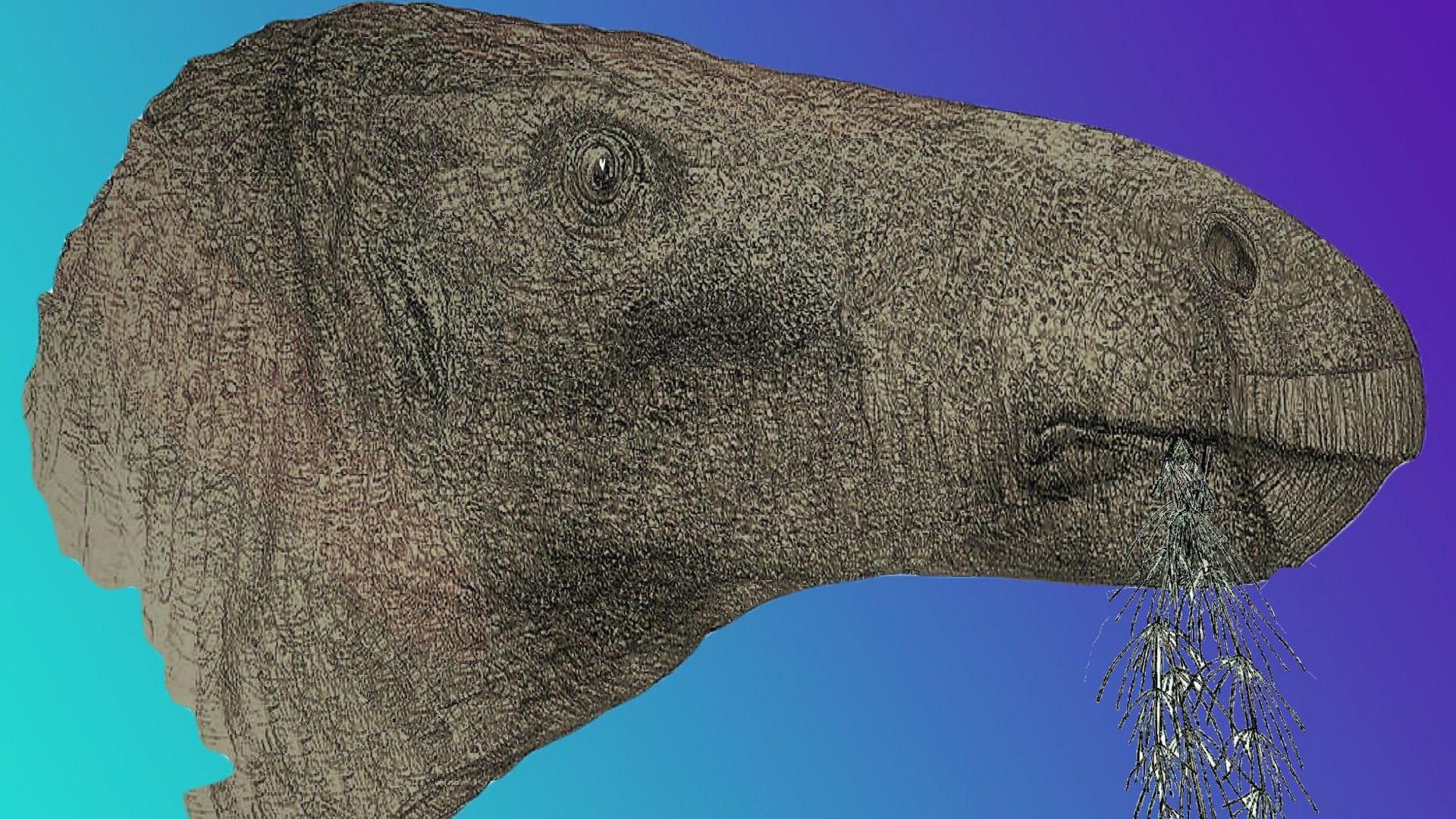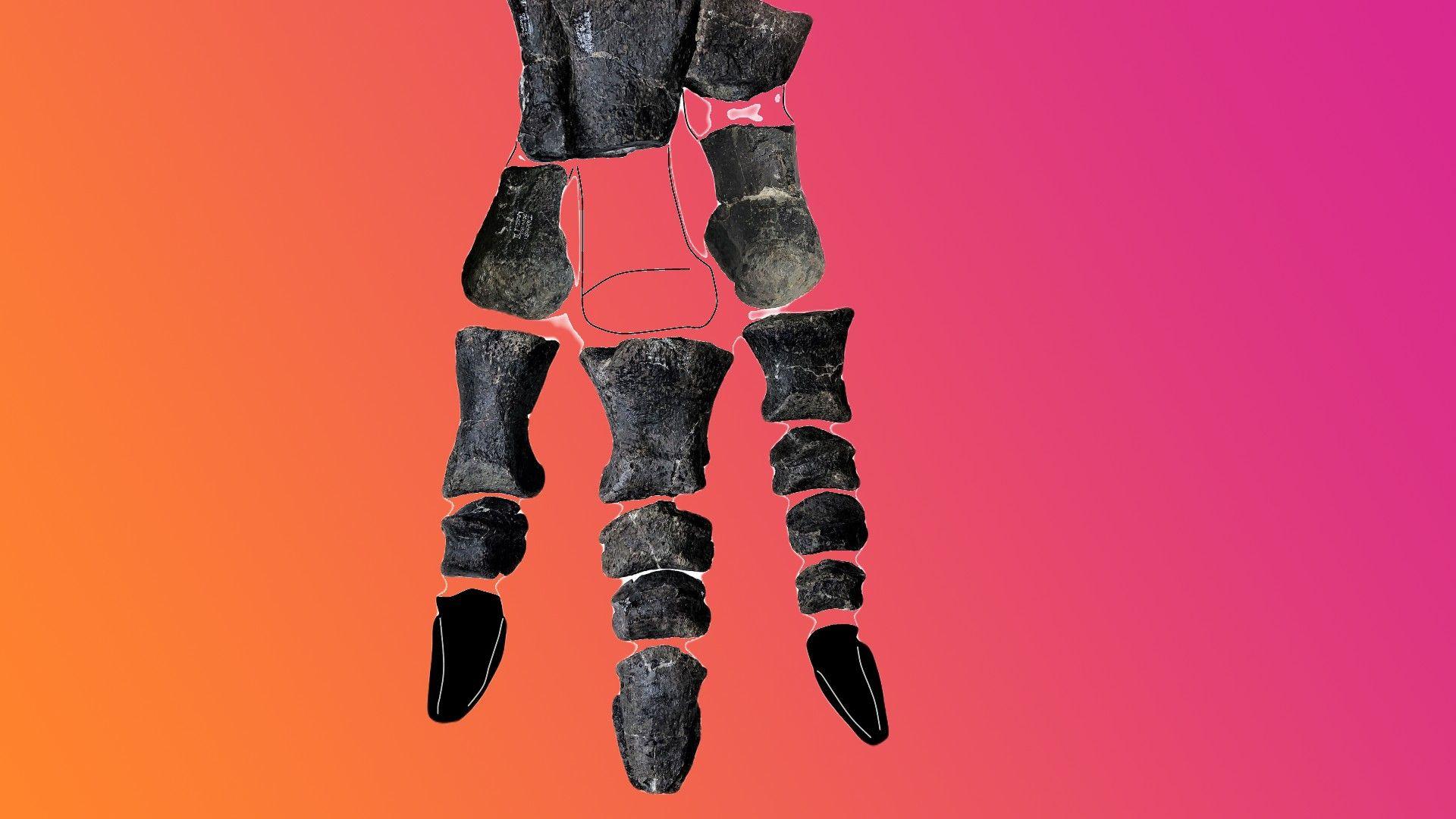Isle of Wight dino is 'most complete' in more than 100 years

- Published
A new species of plant-eating dinosaur - that weighed as much as an African elephant - roamed the Isle of Wight around 125 million years ago, a new study suggests.
The specimen, with 149 bones in total, is believed to be the most complete dinosaur discovered in the UK in a 100 years.
Comptonatus chasei, named after fossil hunter Nick Chase and the place it was found, belongs to a group of plant-eating dinosaurs known as iguanodontians.
The large, bulky creatures are often described as the "cows of the Cretaceous period (145-66 million years ago)" by palaeontologists and were hunted by the meat-eating raptors.
Read more
New triceratops ancestor with fancy horns discovered
- Published23 June 2024
First dinosaur named 200 years ago - what have we learned?
- Published14 February 2024
Some dinosaurs may have become warm-blooded 180 million years ago
- Published17 May 2024
Jeremy Lockwood, a PhD student at the University of Portsmouth, said:
"Evidence from fossil footprints found nearby shows it was likely to be a herding animal, so possibly large herds of these heavy dinosaurs may have been thundering around - if spooked by predators on the floodplains over 120 million years ago."

The study, published in the the Journal of Systematic Palaeontology, looked at every part of the fossil - including skull, teeth, spine and leg bones.
The hip bone is reported to be "about the size of a dinner plate".
Dr Susannah Maidment, senior researcher and palaeontologist at the Natural History Museum, said Comptonatus shows the fast rates of evolution in iguandontian dinosaurs during that time period.
She added the research could help them understand how ecosystems recovered after an extinction event at the end of the Jurassic Period, around 200-149 million years ago.
